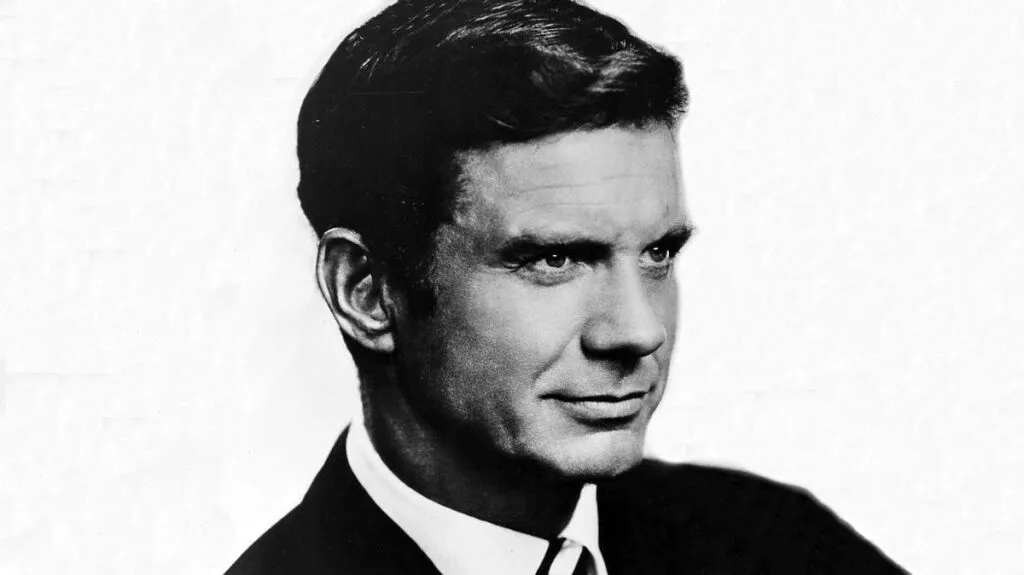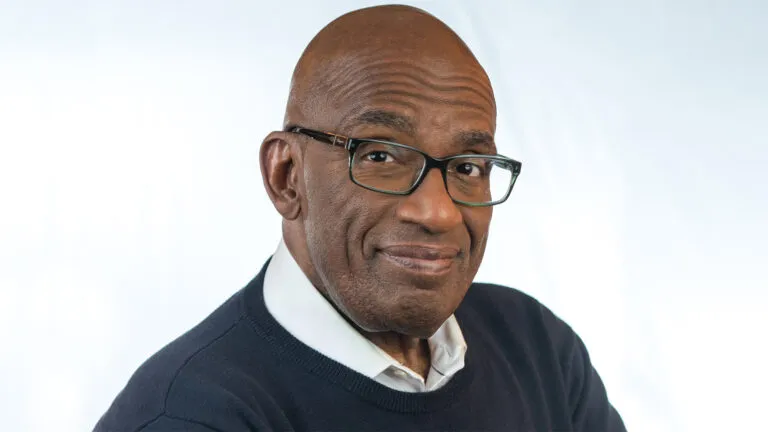Back in 1960, a role that I played in the television drama, The Two Worlds of Charly Gordon, began an unusual chain of events that has affected my life to this day.
The script was based on Daniel Keyes’ short story—and, later, novel—Flowers for Algernon, the fictional story of Charly Gordon, a mentally retarded man who undergoes brain surgery and blossoms into a genius only to learn that he is doomed to slip back into his former retarded state.
To prepare for the part of Charly I wanted to learn firsthand about retarded people, to try if possible to put myself into their shoes. Actually I wasn’t very eager about the prospect. I’d always thought of the retarded as rather scary people to be around. They made me feel uneasy.
A friend directed me to what is called a “sheltered workshop” in lower Manhattan, one of a number of centers where retarded adults like Charly Gordon perform useful work for pay. Carefully supervised, the workers usually do simple, repetitive tasks such as assembling shopping bags, filling containers, stamping envelopes.
READ MORE: ROBERT DUVALL ON FAITH AND INSPIRATION
“You’ll be surprised how well they do,” said my friend.
Even so, on my first visit to the workshop, I was a very skeptical and wary man. 1 went into a big workroom where several dozen men and women were sitting at their stations, some of them folding boxes, some simply staring into space. There was a certain amount of muffled giggling, a shuffling of feet, and the odd slurring sound people make when they cannot form their words.
I watched for a while, chatting with the supervisor, all the time feeling odd and out of place myself.
However, I began to learn from her that there are many different types of mental retardation. There are those people suffering from Down’s syndrome, caused by a genetic disorder, others whose problems stem from a disease affecting them prenatally, and some who are brain damaged at birth. Their IQs vary in a fairly broad range.
Pointing across the room, she added, “Now that man in the corner is one of our brighter workers.” For some time I had been noticing this man stuffing envelopes with furious energy. He was about my size and age, and there was something about his clear blue eyes that I liked. I decided to take the plunge.
“Would you introduce us?” I asked the supervisor.
And that’s how Johnny Doherty came into my life.
“This is Mr. Robertson, Johnny,” said the supervisor. For a moment Johnny Doherty didn’t see my outstretched hand. Then, when he did, he grabbed for it vigorously.
“Oh…uh…uh…glad to know you, Mr. Robinson.”
“Just call me Cliff,” I said.
“Okay, Mr. Robinson.”
I smiled.
The two of us began to talk. Johnny’s speech was somewhat slurred and he often strained at his words, giving undue emphasis to some, skipping over others. To my surprise, we actually carried on a conversation.
Johnny told me about the room he lived in on Staten Island, that he kept it clean and neat all by himself, that he loved Sundays when his cousin took him for drives in Central Park and visits to the zoo. He loved the seals.
At closing time, I asked Johnny if I could walk with him to the subway. I could tell that this pleased him. As we picked our way along the broken sidewalks, he proudly told me about the job he had recently been given. His cousin had found him work as a messenger.
“I know…I can do it…Mr. Robinson,” he said. “Lots of people…tol’ my cousin he was crazy, but Jack…he’s my cousin…he knows I can do it.”
“And so do I,” I said, and when I left Johnny at his subway station, I told him that I’d like to come see him again.
“When?” he shot at me, pinning me down.
“Sometime when I can accompany you on your job.”
Johnny smiled, and thrust out his hand, “Good-bye, Mr. Robinson.”
READ MORE: ED ASNER ON A LIFE-CHANGING ROLE
The strange thing about it was that I was looking forward to seeing him again.
Shortly after that, I started joining Johnny on his rounds from time to time. He liked working. He liked the adventure of subways and buses, and he was proud and careful of his responsibility for getting letters and packages delivered safely and speedily.
On our first day together we hadn’t been out on the street very long when Johnny stopped and began puzzling over the envelope in his hand. He was confused by the address. “Here, let me help you;’ I said, but he shook his head. We went to the address on the envelope, but Johnny was correct, it was wrong.
Again I offered to help, but again Johnny declined. “This is my job, Mr. Robinson,” he said earnestly, “and I got to get it done right.”
His second try was an office up a long flight of stairs where the receptionist looked at the envelope and impatiently thrust it back at him. Once more Johnny furrowed his brow and examined the envelope closely. “Maybe the person who wrote this meant two-six-nine instead of two-five-nine” he said.
I watched him, admiring his doggedness in seeing his job through. I thought of the many so-called “normal” people who, by now, would have given up. But not Johnny Doherty.
On the third try, he successfully delivered the letter. It was two-six-nine.
Johnny didn’t like people staring at him. it bothered him. Sometimes, if we were riding on a bus and somebody began looking at him as if he were a freak, Johnny would suddenly get up and move to another seat. But what people said about him in his hearing was another story.
One afternoon I waited in the background while Johnny placed a package on the counter of a small office on Bleecker Street. “Hey, now,” said a girl behind the counter as she looked up from filing her nails, “here comes the dummy again.”
“Sh-h-h…” said another girl.
“Him? He doesn’t know from nothin’…he’s one of those, what you call …?”
I couldn’t believe what I was hearing.
As time passed I was to find that even beyond people saying cruel and thoughtless things, there were those who pointed and laughed and even played tricks on him.
But more and more I discovered how guileless and open Johnny and other retarded people were. They were endowed with a purity of heart that made me wonder if this was what was meant in medieval days when the retarded were referred to as “children of God.”
Surely Johnny and the others I had come to know were blessed with some rare innocence, some personal security that most of us lack. I began to wonder if the truly handicapped are not those “normal” people afflicted with greed, trickery, rancor.
Johnny was pleased with the idea that I was an actor preparing for a television drama and that he was somehow a part of it. When the show went into production, I took him to the studio with me one morning and positioned him safely behind one of the cameras. I asked him to stay there where he’d be out of the way.
Several hours later we broke for lunch, and I was at the door of the cafeteria before I realized that Johnny hadn’t come with us. I rushed back and found him in the darkened studio dutifully standing behind the camera.
The Two Worlds of Charly Gordon was well received and I was happy about that, but the most important reward for me was my new appreciation for these gallant human beings who yearned to be useful but who were often feared or misunderstood. The TV play about Charly Gordon was a touching drama that helped people understand the retarded.
Wouldn’t it be wonderful, I began to think, if its message could reach millions of people around the world through a full-fledged movie production?
Soon I did something that surprised even me. I secured the film rights for the story. Now I was a committed man. 1 began contacting film people in New York and California, but it didn’t take long to find out that nothing I could say or do had the slightest effect in convincing a producer that Charly Gordon was a sound investment.
READ MORE: JAMES STEWART ON FAITH AND FAMILY
One day in 1967, after seven long years of trying, I went to see still another Hollywood producer. He leaned back in his leather chair, staring at me across a gleaming mahogany desk. “You want to make a film about a retarded man?” He shrugged. “Sweetheart” he said, drawing on a cigar and spewing out a blue cloud of smoke, “it’ll never make a nickel.”
“Why?” I said, though I anticipated his answer from experience.
He waved his cigar, swung his chair around and flipped through some files.
“Here,” he grunted, “listen to this.” Pulling a file, he reeled off the financial losses of a film dealing with retardation made years before. I started once again to explain that it all depends upon the recipe, the blending of talent, script and direction, and then I just stopped. At last I’d had it. I was ready to give up.
That night I drove south to the house I owned in La Jolla, the little Pacific Coast town where I’d grown up. My mother had died when I was two years old and I was raised by my Grandmother Willingham.
How I wished that my grandmother—I’d always called her Willin’ham—were alive now. She was the one I always took my problems to. She would have understood Johnny Doherty and why I wanted to make a picture about Charly Gordon.
When I turned out the light that night 1 lay in bed listening to the crashing of the surf on the beach nearby. That producer is right, I thought. No one wants to invest in a money-loser. For a long time I tossed and turned. Sleep wouldn’t come.
Outside, the waves went on pounding the shore, rhythmically, steadily. Lying there wide awake, I found myself thinking about my boyhood days. I thought of an afternoon when I was building a sand castle.
I could hear Willin’ham tell me that the sand in my shovel had once been solid rock: “Like those cliffs back there,” she’d said, “but the waves pounded at them until the rock crumbled into tiny pieces of sand. It’s persistence that did it, son.”
And then, as she often did, Willin’ham told me a story that Jesus had told first. “Late one night a man had an unexpected guest but didn’t have any food for him. So he knocked on a neighbor’s door. The neighbor stuck his head out of a second-story window and said, ‘Go away! It’s too late for me to get up, and my family is all asleep.’
“But do you know what he did, Clifford?” I shook my head. “He kept knocking and knocking until finally that man took pity on him and came down with the food he needed. So as God told us, if we keep asking, keep on looking, we’ll keep on finding …” (Luke 11:5-10)
I lay in bed, gazing at the glimmer of reflected light wavering on the ceiling.
Persistence.
It had been seven years, but I could see my old friend Johnny Doherty relentlessly pursuing the correct address on a mislabeled envelope. I could see his steadfast stance behind the camera as he waited for me. Persistence…the attribute that had helped see him through a life that otherwise might have been tragic.
If Johnny could persevere, then so could I. Besides, I thought, what would he say if I told him I was giving up on the movie? I’d promised him that he and I would see the very first screening of it alone, just the two of us.
I turned over and went to sleep, knowing what I had to do.
The very next man I saw was Selig Seligman, of Selmur Productions, a top-ranking producer. When I left, he kept a copy of my story and a tape of the television show, and a week later he called me in. Heavy drapes shielded the intense Hollywood sun. Selig sat at his desk, thoughtfully examining his folded hands, then he turned to me.
“Cliff, I may be crazy, but I’m going to take a chance. Anybody who has stayed with a project as long and as determinedly as you have probably has something.”
Charly was made on a very low budget; few people wanted to invest in it. It was finished in the fall of 1968, but Johnny Doherty was not there to see its first private screening. A week before we were to see it together, he was out riding in the car with his cousin. There was a crash. Johnny was killed.
I went to the premiere knowing that Charly wouldn’t have happened without him. It was still another of this gentle, loving, retarded man’s achievements in a world of limited opportunity.
A lot of good things came out of that picture. I’ve heard it said by many mental health professionals that it has helped people everywhere look at the retarded with compassion instead of apprehension. Needless to say, I derived much personal satisfaction from the film, but especially from two telephone calls. One call came from that cigar-smoking producer.
“Sweetheart,” his voice rasped on the phone. “Let’s you and me do a sequel. There’s more money to be made.”
I declined politely. Charly was very special to me; I didn’t want to exploit him.
And the other call came from Selig Seligman. “Cliff,” he said, and it sounded as though he were close to crying, “I’ve got a son in college who confessed last night that he’d never thought too much of the pictures I made. He thought I was just doing them for the money. But when he came home from Charly last night, he put his arms around me and kissed me.” Then Selig hung up.
I stood holding the phone to my ear. Was it the broken line or could I faintly hear something in the background like, “I’m glad…uh…you kept tryin’, Mr. Robinson.”
Did you enjoy this story? Subscribe to Guideposts magazine.





